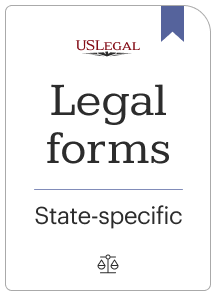

An affidavit must be in writing and be sworn to or affirmed before some legally authorized officer. Statutes of some jurisdictions prescribe formal requirements for the affidavits. An affidavit is statement of facts which is sworn to before an officer who has authority to administer an oath (e.g. a notary public). The person making the signed statement (affiant) takes an oath that the contents are, to the best of their knowledge, true.
The Minnesota Affidavit of Character, also known as a Character Affidavit, is a legal document used to establish the reputation, moral character, and credibility of an individual. This written statement is typically prepared by someone who knows the person in question well, such as a family member, friend, colleague, or professional contact. The Minnesota Affidavit of Character holds significant importance in legal proceedings, providing a personal and firsthand account of the individual's behavior, honesty, integrity, and overall good character. This document may be required in various legal matters, including criminal cases, immigration proceedings, child custody disputes, and civil litigation. There are different types of Minnesota Affidavits of Character or Character Affidavits, each serving a unique purpose: 1. General Character Affidavit: This type of affidavit provides an overall assessment of the person's character traits, highlighting positive attributes and showcasing their goodwill and integrity. 2. Employment Character Affidavit: This specific affidavit focuses on the person's character in the professional sphere. It may include information about their work ethic, skills, reliability, and interactions with colleagues, supervisors, and clients. 3. Character Affidavit for Court: Typically used in criminal cases, this affidavit highlights the individual's character traits and behavior to support their credibility and potentially influence sentencing or court decisions. 4. Character Affidavit for Immigration: In immigration proceedings, this affidavit serves to demonstrate the individual's positive character, community involvement, and adherence to laws, aiming to support their immigration application. When drafting a Minnesota Affidavit of Character or Character Affidavit, it is crucial to provide specific details, personal anecdotes, and examples that substantiate the claims made about the person's character. The affine should clearly introduce themselves, state their relationship to the individual, and outline how they are qualified to assess the person's character. Keywords: Minnesota, Affidavit of Character, Character Affidavit, legal document, reputation, moral character, credibility, written statement, family member, friend, colleague, professional contact, behavior, honesty, integrity, good character, legal proceedings, criminal cases, immigration proceedings, child custody disputes, civil litigation, General Character Affidavit, Employment Character Affidavit, Character Affidavit for Court, Character Affidavit for Immigration, positive attributes, work ethic, skills, reliability, sentencing, court decisions, community involvement, immigration application.
The Minnesota Affidavit of Character, also known as a Character Affidavit, is a legal document used to establish the reputation, moral character, and credibility of an individual. This written statement is typically prepared by someone who knows the person in question well, such as a family member, friend, colleague, or professional contact. The Minnesota Affidavit of Character holds significant importance in legal proceedings, providing a personal and firsthand account of the individual's behavior, honesty, integrity, and overall good character. This document may be required in various legal matters, including criminal cases, immigration proceedings, child custody disputes, and civil litigation. There are different types of Minnesota Affidavits of Character or Character Affidavits, each serving a unique purpose: 1. General Character Affidavit: This type of affidavit provides an overall assessment of the person's character traits, highlighting positive attributes and showcasing their goodwill and integrity. 2. Employment Character Affidavit: This specific affidavit focuses on the person's character in the professional sphere. It may include information about their work ethic, skills, reliability, and interactions with colleagues, supervisors, and clients. 3. Character Affidavit for Court: Typically used in criminal cases, this affidavit highlights the individual's character traits and behavior to support their credibility and potentially influence sentencing or court decisions. 4. Character Affidavit for Immigration: In immigration proceedings, this affidavit serves to demonstrate the individual's positive character, community involvement, and adherence to laws, aiming to support their immigration application. When drafting a Minnesota Affidavit of Character or Character Affidavit, it is crucial to provide specific details, personal anecdotes, and examples that substantiate the claims made about the person's character. The affine should clearly introduce themselves, state their relationship to the individual, and outline how they are qualified to assess the person's character. Keywords: Minnesota, Affidavit of Character, Character Affidavit, legal document, reputation, moral character, credibility, written statement, family member, friend, colleague, professional contact, behavior, honesty, integrity, good character, legal proceedings, criminal cases, immigration proceedings, child custody disputes, civil litigation, General Character Affidavit, Employment Character Affidavit, Character Affidavit for Court, Character Affidavit for Immigration, positive attributes, work ethic, skills, reliability, sentencing, court decisions, community involvement, immigration application.